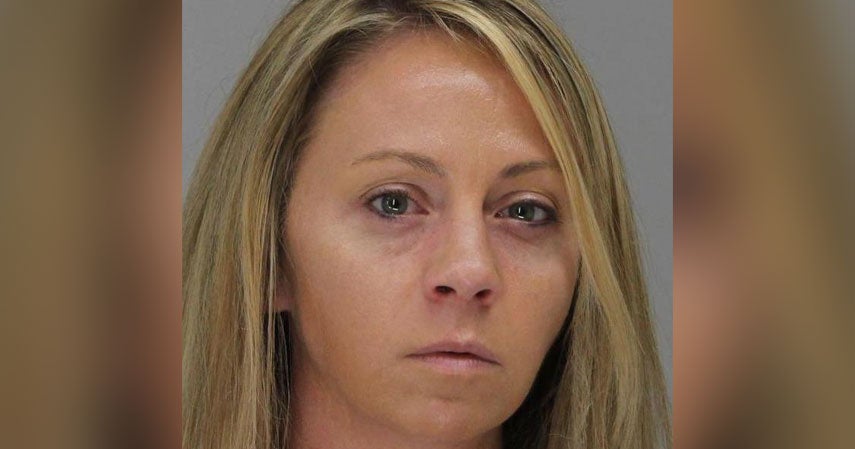Police, lawmakers say the temporary license plate system is being abused
GRAND PRAIRIE, Texas (CBSDFW.COM) – A single sheet of paper: that's all it takes to make a car and its occupants virtually untraceable to police and the public. State law requires auto dealers to print out a temporary license plate every time someone buys a vehicle. But police and some lawmakers say the system is being abused, allowing anyone to display fraudulent plates.
"If you've got a computer and printer at home, you can make a Texas paper tag," said Grand Prairie police chief Daniel Scesney.
The problem is personal for Scesney and his department. In November, officer Brandon Tsai died in a crash while pursuing a car with a fake plate. Police later arrested the driver, who they say was wanted on warrants in Bedford, DeSoto, Grand Prairie and Waxahachie.
"This is a way that's being used by our society's worst of the worst to conceal their identity and commit crimes," said Scesney. But he says it goes far beyond violent crimes.
That's because many of these "ghost cars" are not insured, and some aren't even safe to be on the roads, which means if you get into a wreck with one, your insurance will take the hit.
Drivers are paying for it and so is the state. Texas is losing tens of millions of dollars in revenue from inspections and registrations, along with toll road fees. The Texas Department of Motor Vehicles has been under pressure to fix the problem for years. In November, days after the death of Officer Tsai, the DMV released an updated version of the temporary tag. The agency said the new security features, which include a QR code for officers to check, would help crack down on counterfeits.
Chief Scesney says the new features do little to nothing to address the root of the problem: the paper itself. "They are so incredibly easy to fabricate," said Scesney. "These are just as easy to make."
He showed CBS11 several examples of fake plates that were discovered during recent traffic stops; many included the updated version. "Criminals have already figured out the QR code and are taking you to a dummy website to make it look legitimate," said Scesney.
We rode along with the vehicle crimes unit as officers James Jones and Thomas Berrettini pulled over several vehicles with fraudulent tags. In the first traffic stop, they discovered the vehicle had not been registered or inspected since 2018. The driver could not provide proof of ownership or insurance. He received four citations and had to walk away. The car was towed to the impound lot until someone can prove ownership.
Our fourth traffic stop involved a car with a new version of the DMV's temporary tag. He told officers he'd bought the car on Facebook, and the plate came with it. Once again, there was no proof of ownership or insurance. The driver told officers he had the title at home. They searched the VIN and found a troubling history. "So this vehicle is actually a salvage vehicle," said Officer Berrettini. "So it's not road worthy or supposed to be on the road."
The driver and his passenger had to find a new way home; the car was towed to the impound lot.
In the span of a couple of hours, a few ghost cars down, but thousands to go. "It's satisfying," said Berrettini. "But it's also scary because for every one that I'm catching, there's probably ten that are passing by us while we're doing this investigation."
Full statement from the DMV:
The Texas Department of Motor Vehicles (TxDMV) is committed to supporting the prevention, detection, and investigation of temporary tag fraud, misuse and abuse. Through the many enhancements to dealer licensing procedures, the eTAG system, and improved partnerships with law enforcement, there has been a significant reduction in the number of fraudulent Texas temporary tags being used on the roads. The department will continue to work closely with local, state, and federal law enforcement entities to combat fraud wherever it exists. Although there will always be criminals who will find ways to circumvent the law, TxDMV has addressed many outstanding concerns and will continue to prioritize the reduction of fraud.
Regarding QR codes: The new tags are more complex and secure than previous tags and include additional data and security features to make it easier for law enforcement to identify counterfeit tags. In addition to QR codes, the new design contains embedded data and text which cannot be replicated and is linked to the Texas Law Enforcement Telecommunications System (TLETS), accessible only by law enforcement. For security purposes, we do not discuss specific details about the security features.
Regarding a system of using only metal plates: Current state law requires dealers to issue a buyer's temporary tag at the time of sale. Any change to that process would require legislative action and is not something the department could act on without statutory authority. Department staff will work with members of the legislature as a resource to help develop any proposed ideas to continue combating fraud wherever it is identified. Proposed ideas are reviewed for operational feasibility, financial impact, and their potential to create or perpetuate fraud schemes.
Regarding HB 718: As a state agency, TxDMV does not take a position on proposed legislation. Department staff will work with Representative Goldman, and other members of the legislature, to develop any proposed ideas to continue combating fraud.
Regarding the tracking of reports of fraudulent temporary tag use in Texas and other states: As an administrative agency, TxDMV tracks and investigates complaints against licensed motor vehicle dealers in Texas, including complaints about dealers' possible misuse of the temporary tag system. Department staff refers suspected criminal activity to law enforcement for appropriate investigation and enforcement. We also review information related to fraudulent activity reported by law enforcement agencies, both inside and outside the state, and work with the investigators to provide information supportive to their enforcement operations.
Regarding HB 3927: Since the implementation of this bill, TxDMV has denied access to the eTAG system to 172 dealers and placed limits on the number of temporary tags licensed Texas dealers can create, consistent with the actual sales volume of their business and other business-specific factors. Following the implementation of this bill and other enhanced licensing processes, we have seen the number of new dealers with complaints filed against them in their first year decrease by almost half.






